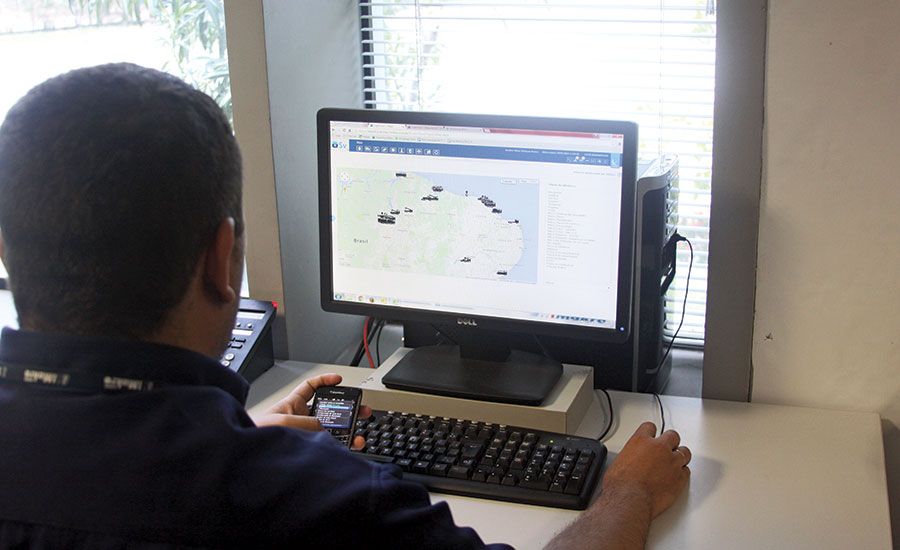
David Rodrigues
One of Brazil’s go-to rigging contractors, Makro Engenharia, needed to reduce highway accidents when its mobile cranes were traveling from site to site. Two years ago, the company started installing telematics, or wireless data monitors, on its machines to keep tabs on its fleet and operators.
Makro’s operational control center, called CCO, sits inside its Fortaleza headquarters and is staffed around the clock.
“For us, it is a really powerful tool to improve productivity and safety,” says Carlos Gabos, a senior engineer at Odebrecht and a Makro customer.
![]() Makro tracks information such as equipment location, loads being lifted and travel speed. It is now monitoring wind speeds to help operators make informed decisions about whether and when to make a pick. In Brazil, for example, more than 70% of the accidents that occur on wind-energy projects are due to operators lifting turbine components in blustery conditions, according to David Rodrigues, CEO.
Makro tracks information such as equipment location, loads being lifted and travel speed. It is now monitoring wind speeds to help operators make informed decisions about whether and when to make a pick. In Brazil, for example, more than 70% of the accidents that occur on wind-energy projects are due to operators lifting turbine components in blustery conditions, according to David Rodrigues, CEO.
“You really need to respect the limitation of the crane,” he says.
Of the 300 cranes Makro operates, roughly 80% now are reporting in wirelessly, and the company is catching errors before they become serious accidents. Operators who demonstrate successful and safe lifting are rewarded and promoted; those who violate the rules are reprimanded or shown the door.
At first, operators didn’t like Big Brother watching them, but crews came to trust that the transparency was for their own good.
“An accident with a crane can be very ugly,” Rodrigues explains. “People here are very satisfied with us because they understand that we are taking good care of them.” Clients, too, have rewarded Makro with three consecutive years of revenue growth.


